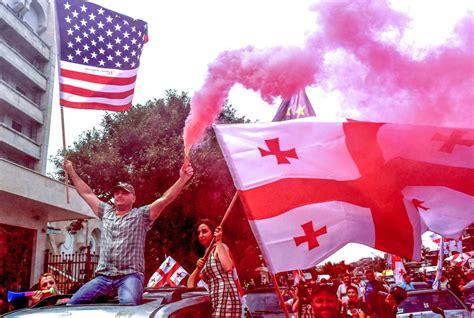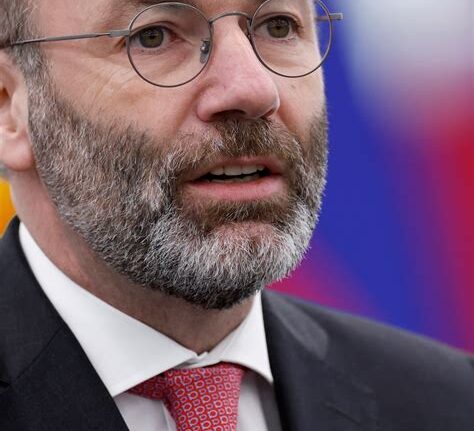Amid the cobbled streets of central Tbilisi, a sea of discontented Georgian citizens flooded the thoroughfares in protest. The source of their frustration? The contentious election that saw former football sensation Mikheil Kavelashvili—an unexpected candidate with a controversial background—ascend to the presidency under the banner of the pro-Russian Georgian Dream party.
Pro-Russian Party’s Grip Tightens
This bold move solidified the Georgian Dream party’s political stronghold, marking a stark departure from the pro-EU stance held by outgoing president Salome Zourabichvili. The singular candidacy of Kavelashvili, known for his tenure with prestigious football clubs across Europe including Manchester City, raised eyebrows and tempers alike.
The election mechanism itself came under fire, conducted through an electoral college heavily swayed in favor of the ruling Georgian Dream party. Opposition voices remained conspicuously silent as they opted to boycott the process entirely, decrying it as inherently biased and preordained.
Criticism and Comparisons
Lithuanian MEP Rasa Juknevičienė minced no words in her scathing critique of Kavelashvili’s abrupt elevation to power. Drawing parallels to autocratic regimes like Russia and Belarus, she decried the move as a theatrical charade that echoed broader authoritarian tendencies within Georgia’s political landscape.
Local media outlets buzzed with accounts of demonstrators converging outside parliament buildings, their collective voices rising in dissent against what they perceived as a subversion of democratic norms. The shift from a direct public vote—which last occurred in 2018—to an electoral college framework fueled accusations of manipulation and foul play.
Escalating Unrest
Georgia found itself mired in prolonged political discord and civil unrest following a series of hotly contested elections that further polarized its populace. Prime Minister Irakli Kobakhidze’s Georgian Dream party weathered accusations of electoral fraud and impropriety from opposition figures like Zourabichvili who labeled the proceedings as deceitful.
The government’s abrupt withdrawal from EU accession negotiations triggered widespread outrage and catalyzed mass demonstrations throughout Tbilisi and beyond. Activists faced harassment, arbitrary detentions, and violent reprisals—a troubling trend that drew condemnation from international bodies such as the European Union.
Call for Restraint
Echoing concerns over Georgia’s democratic backsliding, calls for de-escalation reverberated across diplomatic circles. Pressure mounted on Georgian Dream to heed popular sentiments clamoring for renewed EU aspirations while punitive measures like sanctions underscored global disapproval of recent policy shifts.
As Ukraine joined forces with several EU nations in imposing sanctions on Georgia’s leadership, Kobakhidze attempted damage control by reaffirming his government’s commitment to securing EU membership—a belated olive branch extended amidst mounting domestic turmoil.
Despite assertions to align Georgia with European values, controversies like the enactment of Russia-inspired legislation fuel discontent among citizens wary of eroding freedoms and democratic principles championed during past political eras.









Leave feedback about this